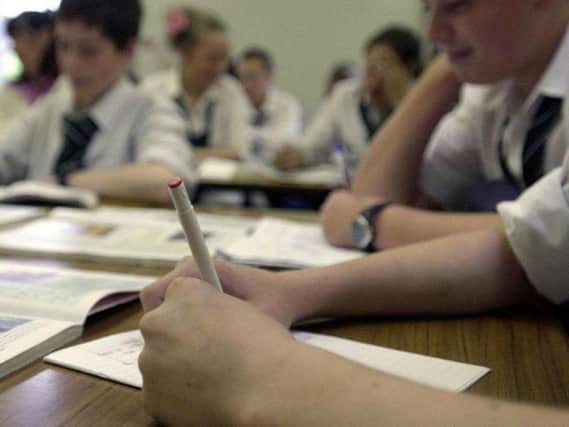Readers' letters - August 28


It was announced that this year’s A-Level results show that boys had done better than girls for the first time in 17 years.
However, I write to ask if anyone can explain what is happening to our once excellent English education?
Advertisement
Hide AdAdvertisement
Hide AdListen to many members of the population educated since 1980 and the standard of English is littered with errors.
Over a period of time, I’ve noticed the same basic mistakes being made by people educated in, not just different schools, but different areas.
Some of the many people I have listened to have at least one degree. The various degrees are awarded by a number of different universities. In common with the schools, the relevant universities are scattered throughout Britain.
Surely, the secondary schools and universities have a responsibility to correct any mistakes being made by primary schools?
Advertisement
Hide AdAdvertisement
Hide AdSimilarly, if the source of these basic errors is beyond its boundaries, why isn’t the education system correcting them?
Given the amount of unnecessary stress and chaos it already causes in some schools, this situation also prompts me to ask about the point and value of Ofsted. So far, despite considering British and foreign television programmes, computer software, and other influences, I’ve been unable to identify the source of some of these errors. Perhaps your readers can help?
The following are just some of many examples: “I have spoke to John.” (I have spoken to John).
“You will be took off the system.” (You will be taken off the system).
Advertisement
Hide AdAdvertisement
Hide AdCorrecting such errors is important. Correct use of language influences many facets of life, including social development. The English language is an essential part of who we are as a species, and it is our joint duty to ensure we educate future generations to use it correctly.
Mr M N Wooff
Address supplied
Opportunity to develop skills
British sixth formers achieving some of the best A-level results seen for several years on exam results day was fantastic news, and we should rightly be proud of these young people.
In The Boys’ Brigade, we believe every young person should have the opportunity to reach their full potential – whether this be in the school or another setting.
This year we are delighted that approximately 50 BB young people took part in our flagship King George VI Youth Leadership Training (KGVI) course.
Advertisement
Hide AdAdvertisement
Hide AdFounded in the 1950s in memory of the monarch, KGVI has provided many young people throughout England and Wales with leadership skills.
The two-year KGVI course is aimed at installing key skills and developing and providing confidence and empowerment strategies, whilst also covering keys aspects of the Boys’ Brigade training to equip young leaders to lead activities in their local BB groups. The course provides a qualification in First Aid and Holiday Leadership. The course makes a significant impact, using their time, talent and enthusiasm to make a difference to the next generation of BB members.
Significantly, this learning experience also allows young people to develop their skills, regardless of academic ability, which they can transfer into the workplace or further education.
Through our programmes, we are committed to providing more opportunities for children and young people to excel, achieve and have fun.
Natalie Whipday
England and Wales
Director, The Boys’ Brigade
England and Wales HQ
EU vote and democracy
Advertisement
Hide AdAdvertisement
Hide AdIn 2016, about 75 per cent of the electorate voted – 52 per cent said Leave and 48 per cent said Remain. This means that only 39 per cent of the entire electorate cast a vote to leave the EU.
The majority voting in favour was smaller than that voting to join in 1975 and we could well have a long period to wait for a further vote.
Why do we regard a vote on one particular day and which commits the nation, perhaps for decades, as more democratic than one in Parliament which can be changed in five years or so?
Mr A Davies
Address supplied